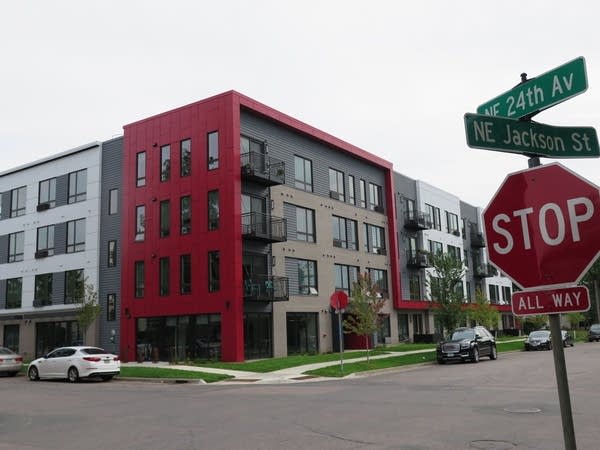Minneapolis rent control proposal takes step forward
But a mayoral veto could limit citizen input on a future policy

Apartments in northeast Minneapolis, where rent control could become a reality.
Martin Moylan | MPR News 2019
Go Deeper.
Create an account or log in to save stories.
Like this?
Thanks for liking this story! We have added it to a list of your favorite stories.


